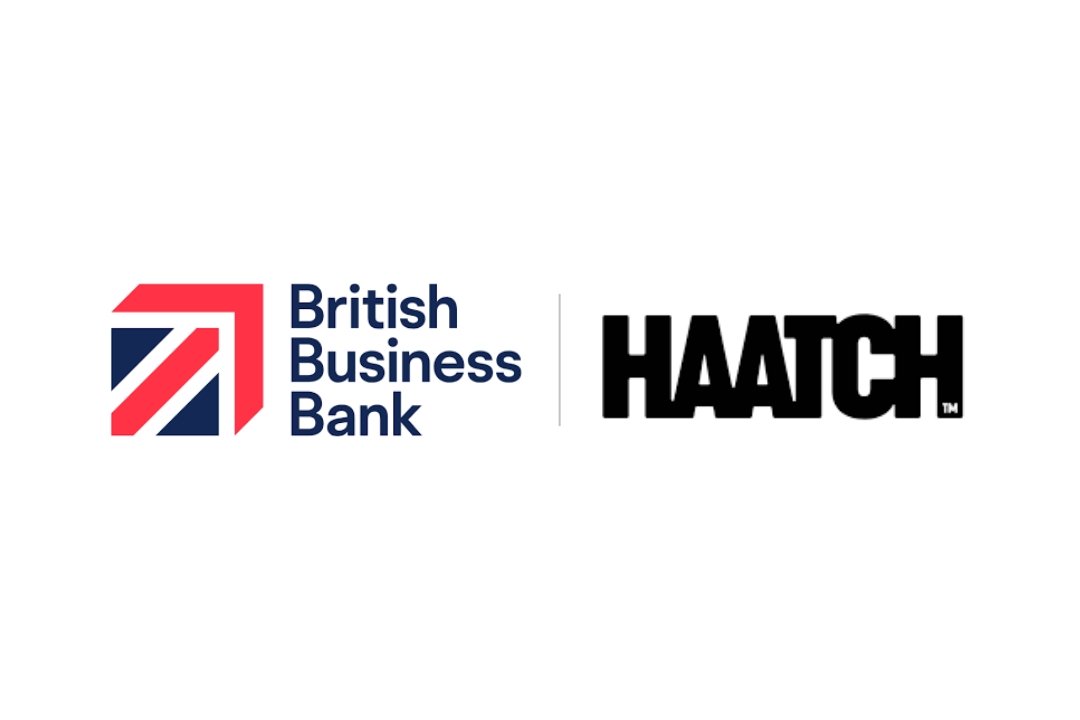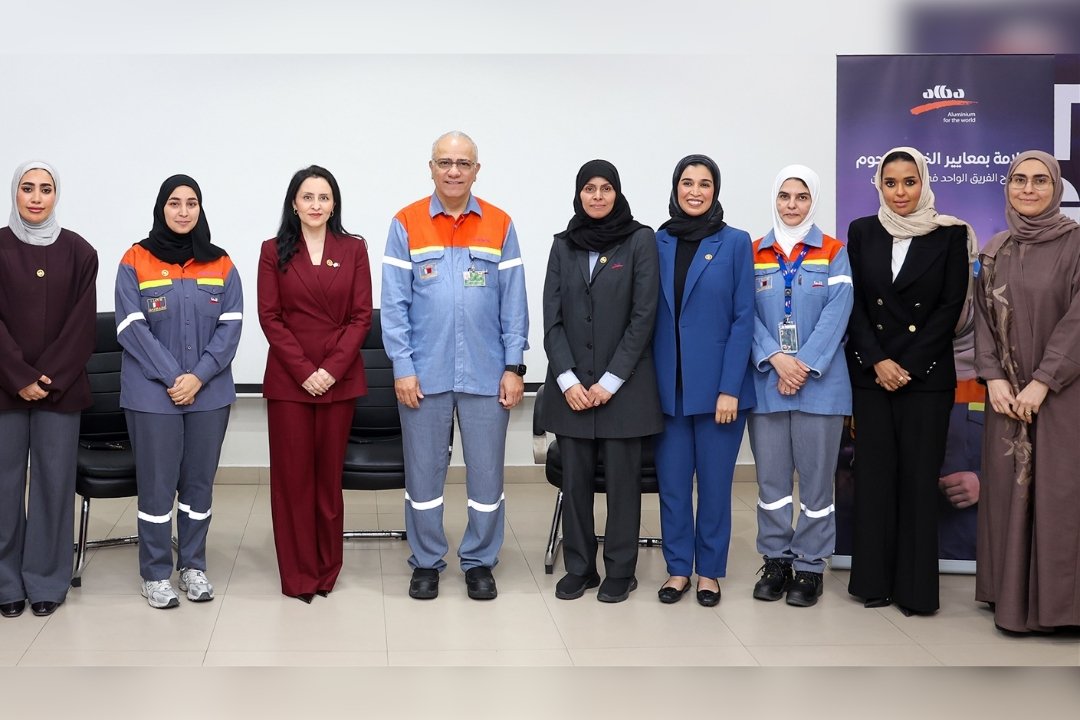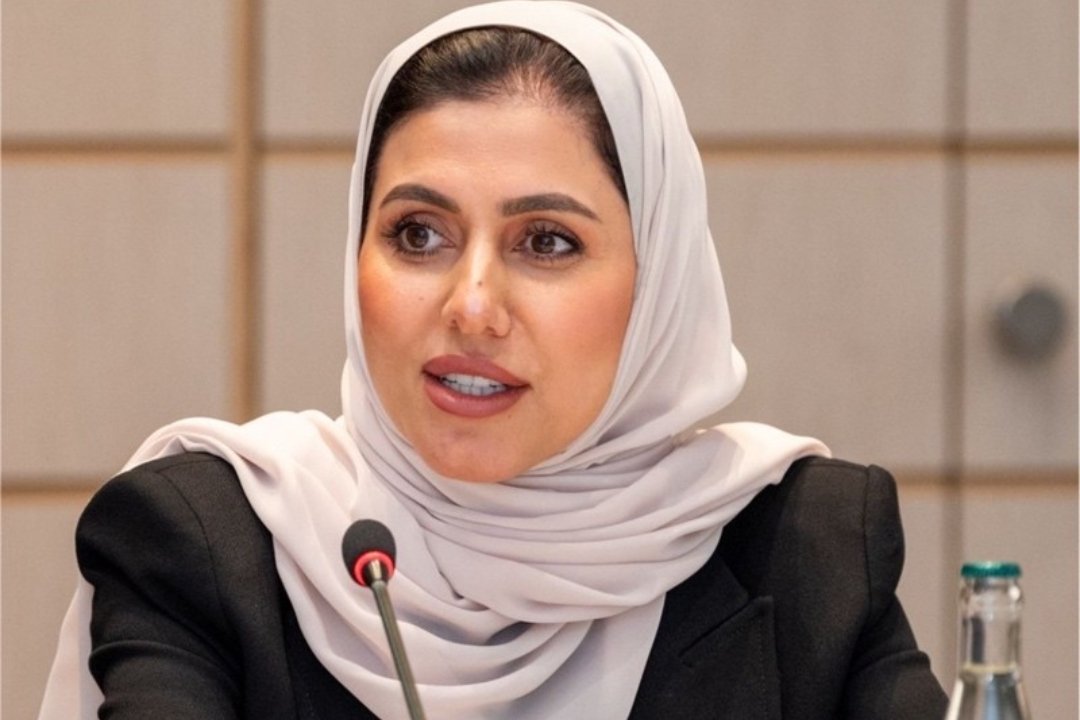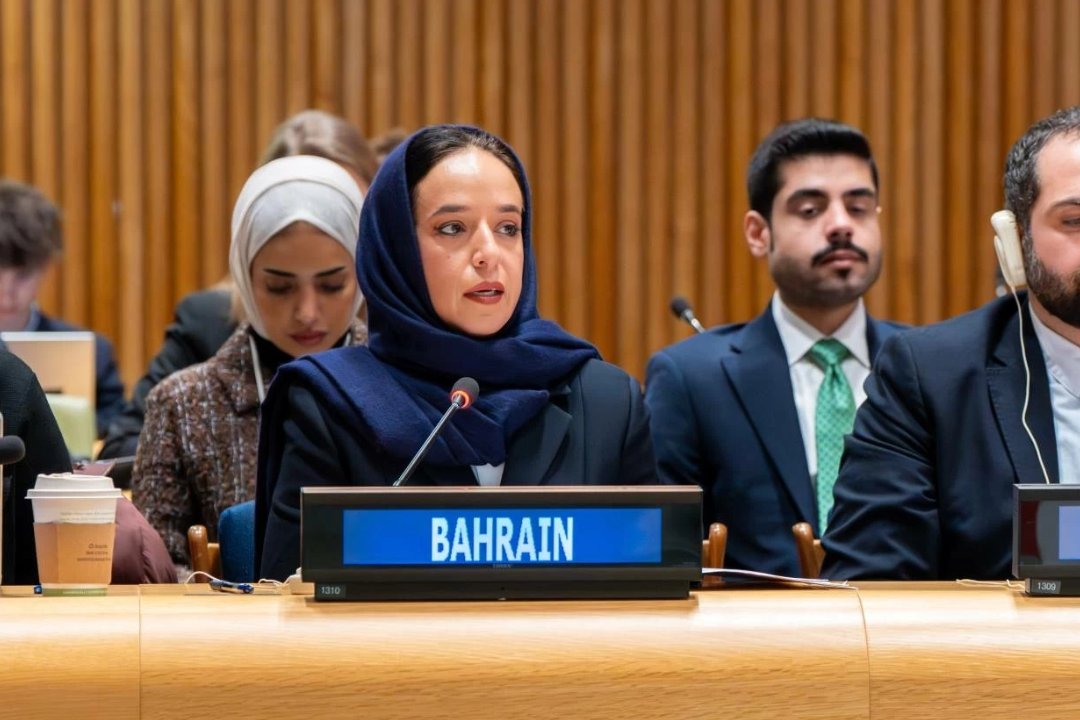In recent years, the business landscape in Africa has witnessed a significant shift as female CXOs are stepping into leadership roles traditionally dominated by men. These pioneering women are not just transforming their corporations but are also establishing new standards of sustainability and female emancipation throughout Africa. Their paths are paved with hardships overcome with the promotion of sustainable ways, with the pioneering of programs that will help the next generation of women leaders.
Overcoming Industry Challenges
It’s a long road to becoming a female CXO in Africa. In the old boy’s network of business, it is very difficult for women, between the whole female bias and lack of access to executive mentorship and then there is the whole juggling act of career and family.
One of the biggest obstacles women face is the societal expectations and stigmas that often accompany their roles. Many African cultures expect women to take on the traditional roles in the family, which adds a lot of pressure and limits their ability to move up in their careers. Female CXOs frequently navigate these cultural complexities as they work to demonstrate their capabilities in a highly competitive and sometimes skeptical business environment. Overcoming these barriers requires resilience and determination as they strive to excel and break through entrenched gender norms.
Moreover, the lack of representation in leadership roles can perpetuate a cycle where women are not seen as potential leaders, which can impact their growth opportunities. Female CXOs often encounter implicit biases that question their decision-making abilities or leadership styles, adding another layer of difficulty to their professional journey.
However, many women have shown great strength and creativity in the face of these obstacles. They use their background and their individuality to make a difference and to motivate. Their success stories serve as powerful reminders that determination and strategic thinking can pave the way for significant achievements, even in the face of adversity.
Advocating for Sustainability
Female CXOs in Africa are leading the charge in making businesses more sustainable. Their commitment to sustainability isn’t just about following global trends, it’s about making a real, lasting difference. They are focused on creating long-term positive impacts and genuinely want to contribute to a better world.
These are leaders who know that sustainability is not all about being environmentally friendly, but it is also about social equity and economic stability. They are proponents of climate-cool practices, resourceful efficiency, and corporate social responsibility. They rule with a green, global vision that takes into account the impact on not only the people but the world as well.
Many of the women CXOs are the first to head up these initiatives including renewable energy utilization, waste minimization, and ethical sourcing. They help push their companies to use green technology and think of new ideas that leave smaller carbon footprints and help conserve the environment.
Not only that, but their concern for sustainability also tends to carry over into creating an “inclusive” workforce. They support diversity and inclusion, and in doing so foster atmospheres in which unique contributions are appreciated, and innovation is allowed to flourish. Not only is this good for the organization but also for the overall good of society as a whole (i. e. close the gap between the haves and the have-nots, economic development, etc.
Empowering Future Generations
Women empowerment is a central theme in the leadership of female CXOs in Africa. These women are dedicated to building bridges for other women to follow in their footsteps on the corporate ladder and higher. They have all kinds of empowerment programs and obviously recognize that gender equality is a complex issue.
Mentoring and sponsorship play a large role in their empowerment. Many women CEOs spend time mentoring women who are just starting out in their careers and giving them the advice, support, and contacts they need to succeed. They actively engage in programs that aim to build leadership skills, confidence, and professional acumen among aspiring female leaders.
Besides mentoring, a lot of the women CXOs are actively engaged in advocacy and policy-making to promote equality in the business world. And they advocate for affirmative action programs that break down systemic barriers, and fair policies that work towards equality in the workplace between the sexes. Their involvement extends to driving legislative and cultural changes that benefit not just their organizations but the broader business community as well.
Education and training are also key areas of focus. Many women CXOs actively lead programs that provide educational resources and training for women, particularly in fields with low female representation. They often support or advocate for initiatives that offer workshops and skill-building opportunities, aiming to equip women with the tools they need to advance in their careers.
And besides that many of these women leaders use their position to bring other women up and to get them recognized for their hard work. They celebrate success and share stories of perseverance, and by doing so they create an atmosphere of recognition and admiration and thus inspire other women to strive for leadership.
Pezesha’s contributions to Africa’s journey to women’s empowerment.
{Ms. Hilda Moraa, Founder & CEO of Pezesha}
 Pezesha is a licensed Pan African embedded finance platform that has been at the forefront of solving Small & Medium businesses’ (SMBs) working capital, particularly informal women-led micro businesses. Mainstream institutions have continued to exclude female-led MSMEs from basic financial services such as credit, mainly because of informational asymmetry, a lack of formal forms of collateral, and limited digital credit histories. As a result, many female entrepreneurs remain underserved by traditional financial institutions and are unable to access the financing needed to grow their businesses.
Pezesha is a licensed Pan African embedded finance platform that has been at the forefront of solving Small & Medium businesses’ (SMBs) working capital, particularly informal women-led micro businesses. Mainstream institutions have continued to exclude female-led MSMEs from basic financial services such as credit, mainly because of informational asymmetry, a lack of formal forms of collateral, and limited digital credit histories. As a result, many female entrepreneurs remain underserved by traditional financial institutions and are unable to access the financing needed to grow their businesses.
Pezesha is currently scaling up its proven digitally-enabled finance platform which allows us to take a collaborative and holistic approach that is fully integrated, frictionless, and seamless to drive diversity and reach more under served women-led businesses and provide them access to inventory and working capital needs that catapults their business to the next level. This approach allows us to co-create solutions that address women-specific pain points and empower them to thrive in their entrepreneurial endeavors.
Pezesha’s platform also plays a role in enhancing financial literacy among SMBs. So far we have empowered more than 300,000+ small businesses with our real-time financial education. By providing easy-to-understand financial tools and insights to ensure effective cash flow management, Pezesha helps businesses better understand their financial position and make informed decisions to avoid common pitfalls such as delayed payments, liquidity shortages, and curb indebtedness. Financially literate entrepreneurs make more informed overall financial decisions and assess their creditworthiness more objectively as they grow up the Pezesha financial ladder. Hence, arming women entrepreneurs with the appropriate financial knowledge and skills will boost their effective engagement in the credit market.
I continue to serve through mentorship and championing female leadership in the Tech and Fintech sectors in Africa. Through my book- A Kenyan Startup Journey, I share practical learnings with young entrepreneurs and women in STEM to build resilience and confidence and use technology to drive the change we want to see in Africa. In addition, my appointment as the advocate for UN (United Nations) UNCTAD, – eTrade for Women Advocate for English-speaking, Africa region 2024-2025, allows me to influence policy that addresses inequalities in the digital economy to sustainability impact and drive meaningful financial inclusion.
Perception of Women’s Empowerment in the African Business Community
The perception of women’s empowerment in Africa’s business community is evolving positively, with increasing support and acknowledgment of the value that women add to the entrepreneurial ecosystem. However, more intentional efforts are needed to harness strategic partnerships that drive policies and investments. It should also include discussions about paradigm shifts in how women are perceived, supported, and integrated into economic and entrepreneurial activities.
FinTech has been a key driver in transforming this gap by making it easy for the underserved to leverage mobile technology to access credit through alternate finance services. Despite the improvement, at least 50% of women get rejected due to the lack of smartphones, internet connectivity, and digital/financial literacy skills, the absolute essentials when it comes to inclusivity.
The financing gap for women remains significant for certain population groups, such as rural or marginalized communities facing heightened exclusion due to compounded barriers, including limited infrastructure and cultural norms that restrict women’s mobility and autonomy. These intersecting challenges exacerbate the digital divide, making it even more difficult for female-led businesses to access digital credit services and participate in the formal economy.
Women are over-mentored but underfunded. There is a rise of mentorship initiatives and accelerators focused on supporting women entrepreneurs. However, we are not seeing the same growth translating to more women accessing early-stage investments from VCs, especially for African women in the Fintech space. The funding is less than 5% penetration. The business community is increasingly aware that supporting women is not just a matter of fairness but also adds to a strategic economic advantage.
There is a growing recognition of the importance of women’s empowerment within the African business community. This shift in perception is partially driven by the recognition of more successful women entrepreneurs who serve as role models and demonstrate the potential of women in leadership and innovation. We need to continue to put more women on the map to change the narrative that it is possible to drive inequalities when women are involved, recognized, and invited to the table. Initiatives aimed at increasing women’s participation in business and technology are becoming more common, reflecting a broader commitment to addressing gender disparities.
About Ms. Hilda Moraa:
Hilda Moraa is the Founder & CEO of Pezesha, a leading Fintech in East Africa. An award-winning entrepreneur and author, she has more than 15 years of entrepreneurial experience in Fintech and working with multinational supply chain firms like Coca-Cola to develop innovations across Africa. She is also the newly appointed UN (United Nations) UNCTAD – eTrade for Women Advocate for English-speaking, Africa region 2024-2025.
Advancing Women in Banking: A talk with Adetutu Oludare
{Ms. Adetutu Oludare, CFO of Optimus Bank}
 Can you share some of the challenges you faced as a woman rising to the position of CFO in the banking sector? How did you overcome them?
Can you share some of the challenges you faced as a woman rising to the position of CFO in the banking sector? How did you overcome them?
Challenge:
I have faced numerous challenges throughout my career, but stepping into the role of CFO was particularly significant. I was tasked with setting up foundational processes that are typically already in place in existing banks. Joining a new institution, with a team fresh out of training school, was quite demanding, I had to be a coach and be very hands-on. However, I believe the experiences I gained in 2020 prepared me for the responsibilities I assumed in August 2022.
For me quitting has never been an option in any endeavor, although 2020 almost proved me wrong. I would ask myself over and over, “Should anything be this difficult?
After a series of interviews, I got my redeployment letter to resume as ALM Manager on March 1, 2020. I was so excited about the opportunity ahead and ready to work. At the time, the two staff in the space were due to relocate at the time I joined. The ALM space is a highly specialized area, with strict timeliness from internal and external stakeholders. It also requires being very spontaneous with requests yet not compromising accuracy and quality of work.
Then, the pandemic happened, and there was a compulsory lockdown on March 31, 2020. Ah! I was barely one month on the job. At this time, one of the staff had left before the lockdown. I had plenty of questions running through my mind so quickly.
- How do I cope with remote working?
- How will the batons be handed over without hitches?
- How much time do I have to assimilate all the complex processes given the knowledge of the exit of the second staff?
All my fears were very valid, and they soon became my reality. Remote working came with network issues, learning remotely was definitely not an easy task, and before I knew it at about two months plus while still trying to find my footing. My colleague called on a Sunday, precisely on June 14, 2020, that she was traveling the next day.
You can imagine the how’s right! I was so overwhelmed. I forgot to mention that before I stood up for the role, I had my MSc in Finance in view, and I had gotten to the project writing stage. I had my final dissertation submission due on 30th June 2020.
So, my how’s increased right? How do I meet up with my dissertation deadline? I was so disturbed. I definitely needed help; I am so thankful to my Husband for my support through this phase.
But Guess What? I conquered.
How I overcame:
I wore my determination cap and worked closely with my line manager to deliver the best for the ALM Function. I worked extra hours to make up and immediately requested to access the building so we could work on-site. It was definitely not an easy one, determination played a big role in helping me settle.
The schedule was very tight, so I reached out to my school- the University of Leicester for an extension of my dissertation deadline, I applied for mitigating circumstances and thankfully I got an extension till October 31, 2020.
My supervisor was a Greek man, he initially thought I was not giving my best to the project obviously because my hands were full. The extension gave me a chance to rewrite the narrative and I ensured that I took all his feedback while leveraging on my Senior colleague in the Capital Management space since I was writing on ” Impact of Capital Adequacy on Profitability and Loan Growth”.
Did I mention at some point I got an email from my school that should I fail to meet the extended deadline I would be issued a diploma certificate? Diploma!! It arose another round of anxiety in me.
I continued to learn and work at the same time and surely, I settled into the role. Also, I was able to meet my dissertation extension deadline on 4th January 2021. I got an email of my dissertation result, I was so anxious opening the link, Guess what? It was mind-blowing. I had an A, and had my MSc. With a Distinction, you can imagine my reaction right!
I have come to learn that there is nothing that is not achievable if only we can commit ourselves to it and work with determination. When there is a will, there is a way. We really can achieve the impossible irrespective of the challenges that come our way.
In your opinion, how has the landscape for women in banking and finance changed over the years in Nigeria?
The landscape for women in banking and finance in Nigeria has evolved significantly over the years, showing broader societal changes and an increasing emphasis on gender equality.
Some of the notable changes will be:
Increased Representation of Females in Leadership Roles
In the past, leadership positions in banking and finance were predominantly occupied by men. However, there has been a rise in the number of women holding executive and board-level roles. Notable examples include women leading some of Nigeria’s largest banks, such as Guaranty Trust Bank (Mariam Adesanya), Fidelity Bank (Nneka Onyeali-Ikpe), Lotus Bank (Kafilat Araoye), FCMB (Yemisi Edun), Unity Bank (Tomi Somefun), Zenith Bank (Adaora Umeoji). This shift demonstrates a breaking of the glass ceiling in a traditionally male-dominated sector.
Gender Diversity policies
The Central Bank of Nigeria (CBN), as the apex regulatory authority for banks, has been a strong advocate for gender diversity in the financial sector. The CBN’s policy mandating a minimum of 30 percent female representation on boards of Nigerian commercial banks, has significantly promoted inclusivity. Additionally, various programs aimed at supporting women in entrepreneurship, finance, and banking have been introduced to further enhance their participation and leadership in the industry.
Development of Women-Centric Products and Services
To encourage financial inclusion, many banks have developed products specifically tailored to support women-led businesses and women-focused investments. These products are designed to close the gap in financial access for women, a group that has been underserved.
How can banks and financial institutions do more to support and advance women in their careers?
Banks and financial institutions can take several steps to further support and advance women in their careers, ensuring a more inclusive and equitable work environment. I would like to list three of the steps:
Implementing and Strengthening Gender Diversity Policies
They should establish and enforce clear policies aimed at promoting gender diversity at all levels. This includes setting measurable targets for the recruitment, retention, and promotion of women, particularly in leadership and decision-making roles.
Creating Flexible Work Environments
To support women in managing their careers alongside personal and family responsibilities, financial institutions should provide flexible work options, such as remote work, flexible hours, and extended maternity leave. These measures would help reduce attrition and offer women the necessary flexibility to continue advancing in their careers.
Providing Leadership Training and Professional Development
Investing in leadership training and development programs specifically designed for women will equip them with the skills and confidence needed to assume more senior roles. Providing access to continuous education and executive training will further support their growth and leadership potential, empowering them to seize new opportunities with greater self-assurance. I have benefited from such interventions aimed at advancing women in their careers.
In your view, what are some key areas where women still face barriers in the banking sector, and how can these be addressed?
Despite the progress that has been made in promoting gender diversity, women in the banking sector still face a few barriers, that are closely related to the points already mentioned.
Cultural and Structural Barriers
In Nigeria, we have cultural expectations and unconscious bias that hinder women’s advancement. Women and everyone in their network have to work together to overcome this:
- Diversity and Inclusion Training: Implementing mandatory training to raise awareness about unconscious biases and promote an inclusive work environment.
- Inclusive Work Culture: Encouraging a culture where women’s voices are heard and valued and creating safe spaces for them to express concerns or experiences with discrimination.
Work-Life Balance
Women often face challenges balancing work and family responsibilities, which has limited the career advancement of many. This issue can be addressed by:
- Flexible Work Policies: Expanding access to flexible work options, such as remote work, flexible hours, and childcare support, to make balancing work and personal life easier.
- Parental Leave: Providing extended maternity and paternity leave, along with support for women returning to the workforce after career breaks.
- Strive to be the Best: Women should not continue to make the excuse of being women, it is a privilege and we must learn our strength so we can be counted.
How are African banks adapting to the economic challenges and opportunities presented by global financial changes?
As much as there are economic challenges that African banks face, they are adapting by embracing digital innovation, strengthening risk management, enhancing financial inclusion, and seizing opportunities in cross-border trade and green finance.
Embracing Digital Transformation
As global financial systems increasingly rely on technology, African banks are accelerating their digital transformation efforts. This includes:
- Mobile and Digital Banking: With the rise of fintech and mobile money platforms, many banks are investing heavily in digital banking services to reach unbanked populations and improve access to financial services. Countries like Kenya, Nigeria, and South Africa have become leaders in mobile banking innovation.
- Blockchain and Cryptocurrency: Some African banks are exploring blockchain technology for more secure and efficient transactions, while others are cautiously engaging with cryptocurrency as a response to global trends. The Central Bank of Nigeria (CBN) has maintained a cautious and restrictive stance on cryptocurrencies.
Strengthening Risk Management and Compliance
With increased volatility in global markets, African banks are focusing more on robust risk management frameworks to safeguard against economic shocks. They have adopted enhanced regulatory compliance, adapting to new international regulations, such as the Basel III standards, to ensure stronger capital adequacy and better risk management.
Cross-Border Expansion and Regional Integration
Many African banks are expanding their presence across borders to capture opportunities in other African markets, responding to both regional and global financial shifts with relevant agreements and integrations:
- African Continental Free Trade Agreement (AfCFTA): Banks are positioning themselves to facilitate cross-border trade and investment under AfCFTA, which aims to create a single market across Africa. This presents opportunities for African banks to support intra-African trade with innovative financial products.
- Pan-African Banking Networks: Ecobank and Standard Bank, are building pan-African networks to tap into broader regional markets, thereby reducing exposure to individual country risks.
What are the most significant trends currently shaping the banking and finance sector in Africa?
West Africa
Nigeria
The Central Bank of Nigeria (CBN) mandated a recapitalization exercise requiring banks to hold minimum capital of NGN500 billion for international banks, NGN200 billion for national banks, and NGN50 billion for regional banks. The publicly listed banks have actively begun raising the funds.
Nigeria emerged as a hub for fintech innovation, with companies such as Flutterwave and Paystack at the forefront of digital payments and financial technology. Flutterwave recently attained “unicorn” status, surpassing a valuation of $1 billion, and continues to lead the advancements in digital payments across Africa.
East Africa
East Africa is renowned for its mobile money revolution, led by M-Pesa in Kenya. This service has transformed the way people conduct financial transactions, making banking accessible to a wider range of stakeholders. In recent years, it has expanded its services to include international money transfers, loans, and savings products. The platform also operates in Tanzania, Uganda, and Rwanda.
Rwanda and Uganda introduced regulatory sandboxes to promote fintech innovation, these sandboxes provide fintech startups with a controlled environment to test their products and services under the guidance of central banks promoting innovation and compliance.
Southern Africa
There is a growing emphasis on sustainable finance in Southern Africa. Banks like Standard Bank and Nedbank in South Africa are incorporating environmental, social, and governance (ESG) criteria into their lending and investment decisions.
South Africa is implementing regulatory reforms to enhance the stability and resilience of its banking sector, including stricter capital requirements and improved risk management practices.
North Africa
Islamic finance continues to grow in North Africa, particularly in Morocco, Egypt, and Tunisia, where there is increasing demand for Sharia-compliant financial products.
- Morocco’s Sukuk Issuance: Morocco has been actively developing its Islamic finance sector, including the issuance of sukuk (Islamic bonds). The country’s first sovereign sukuk issuance was in 2018, and the government has continued to expand Sharia-compliant banking and investment products.
- Al Baraka Bank (Tunisia): Al Baraka Bank Tunisia is one of the leading Islamic banks offering a range of products, from Islamic loans to sukuk investments, as part of the growing demand for alternative finance options.
Healthcare in Africa: In conversation with Abimbola Adebakin
{Ms. Abimbola Adebakin, Founder & CEO of Advantage Health Africa}
 What inspired you to start Advantage Health Africa, and how did you identify the need for such an organization?
What inspired you to start Advantage Health Africa, and how did you identify the need for such an organization?
When I started Advantage Health Africa for the second time in 2017, I simply wanted to solve some of the ‘wicked’ problems in healthcare and provide patients access to quality and affordable medicines. My career spanned pharmacy (community, hospital, and marketing), financial services, and management consulting with a focus on organizational, leadership, and entrepreneurship development. Having learned so much about systems, organizational design, and performance improvement in these other sectors, it was important for me to bring those models and learnings into the retail pharma sector where I had observed a lot of fragmentation with little digitization. At Advantage Health Africa, we are solving the problem of inadequate access to quality and affordable healthcare through aggregation and by leveraging technology. We are building the African health ecosystem of the future through network, technology and innovation, powered by our market access solutions– myMedicines (tech-enabled last-mile access to medications), myPharmacy (pharmacy management resource center + growth hub + network of franchise pharmacies + end-to-end pharmacy management solution), myAdvantage (health affordability solution via Community-as-a-Service & teleconsultation), myZuriCare (medicines subscription solution for persons with chronic conditions, with stabilized pricing and lifestyle support initiatives) as well as Advantage Pharma (pharmaceutical marketing & distribution venture).
In your view, what are the current strengths and weaknesses of working standards within the healthcare industry in Africa?
Nigeria’s growing economy and the vast innovation in its private sector are some of the key strengths of her healthcare industry. Sadly, we continue to grapple with underinvestment in healthcare infrastructure, workforce shortage, and a high disease burden. A multi-faceted approach that leverages increased financial investment, improved regulatory reforms, and cutting-edge technology is required to strengthen healthcare delivery in Nigeria.
Are there particular barriers or challenges that women face in the healthcare industry that need more attention or support?
Women in Nigeria’s healthcare industry face several barriers and challenges. These challenges exist both for women as healthcare professionals and as patients within the healthcare system. From underrepresentation in healthcare leadership roles to challenges of balancing healthcare roles with family responsibilities, female healthcare professionals are encumbered with barriers that prevent them from being the best version of themselves. As patients, females experience barriers to healthcare address including limited access to quality maternal and reproductive healthcare services as well as gender-based violence (and limited access to support services). Factors such as cost, illiteracy, and cultural norms contribute to poor maternal health outcomes. Many healthcare facilities lack the appropriate services, training, or sensitivity to adequately support survivors of GBV, including access to safe abortion, psychological support, and legal assistance. Addressing these issues is crucial for improving gender equity and overall health outcomes in Nigeria.
In your opinion, what strategies could be implemented to further enhance women’s leadership and participation in healthcare?
From strengthening the implementation of gender-sensitive policies and regulations to expanding access to quality maternal health services, family planning, and reproductive health education, particularly in underserved rural and conflict-affected areas, these are crucial strategies to enhance healthcare access for women. For women in healthcare leadership, providing targeted training, mentorship, and leadership development programs for women to enhance their skills, knowledge, and representation in decision-making roles within the healthcare sector would be valuable. Additionally, improving data collection on gender disparities in the healthcare workforce and patient outcomes is essential to inform policies and interventions aimed at promoting gender equity.
Incidentally, we have an ongoing initiative empowering female Community Health Entrepreneurs in Kaduna State, in partnership with Health Entrepreneurs and funded by Bayer Foundation. It’s a sustainable and scalable model that addresses this issue.
What are some effective sustainability strategies you have observed or implemented in the healthcare sector?
Sustainability in the healthcare sector is increasingly recognized as vital for ensuring long-term health outcomes, reducing environmental impact, and maintaining financial viability. From transitioning to renewable energy sources like solar panels at our office to ensuring proper disposal of pharmaceutical waste across our pharmacies, we are intentional about implementing sustainability-focused strategies at Advantage Health Africa.
Our care delivery model at myMedicines is expanding telemedicine and remote care services to different parts of the country, reducing the need for physical visits, thereby lowering transportation emissions and reducing the strain on healthcare infrastructure. Additionally, we have collaborated with strategic partners to provide sustainability-focused solutions to pharmacies in our network, to address critical needs of inventory control, infrastructure enhancement, and business expansion. One of our notable members in the southwestern part of Nigeria accessed timely and affordable finance from one of our strategic partners. With the finance, they transitioned to solar-powered energy systems, eliminating diesel expenses and ensuring uninterrupted power supply. This improved the delivery of healthcare services and increased revenue generation for the pharmacy business.
How can healthcare organizations balance the need for sustainability with the demand for high-quality patient care?
Balancing sustainability with the demand for high-quality patient care is a critical challenge for healthcare organizations. Achieving this balance involves integrating sustainable practices into everyday operations while ensuring that patient safety, quality of care, and efficiency remain uncompromised. Sustainability should be embedded within the overall strategy and quality management frameworks of healthcare organizations. Integrating renewable energy sources such as solar panels can provide reliable, clean energy for critical care areas without compromising the power supply needed for medical equipment and the delivery of care especially in rural communities. Additionally, climate-focused pharma manufacturing as well as sustainable waste management and reuse strategies can reduce environmental impacts while maintaining a clean and safe environment for patient care. Moving to digital record-keeping reduces paper waste, improves data accessibility, and enhances coordination of care, leading to higher-quality patient outcomes. All these are some ways through which healthcare organizations can balance the need for sustainability with the demand for high-quality patient care.
Can you tell us about the multiple brands you have set up in AHA like – myMedicines, TheAdvantage, myAdvantage, Advantage Pharma, and more?
At Advantage Health Africa, we are democratizing access to quality and affordable healthcare through our market access solutions, pharma distribution, and systems strengthening initiatives. Through our market access solutions comprising delivery of genuine and affordable medicines to individuals, a telehealth & medication cover subscription, and a subscription package for people living with non-communicable diseases (NCDs) to provide stable medication prices and lifestyle support, patients can get the care they need by engaging with our healthcare team. Through our pharma distribution unit (Advantage Pharma), we provide pharmacies, hospitals, and other institutions with genuine and affordable locally manufactured medicines. We were recently appointed as a Drug Management Organization (DMO) to enable better access to locally manufactured drugs for insured Nigerians. To strengthen the sector, we provide access to markets, skills, funding & opportunities, as well as business development and support services for licensed community pharmacies through a business accelerator hub.
Collaboration is at the core of our work as a pharma-tech company. We recently launched The Advantage, a core solution set to power business operations across pharmacies and drive interoperability with health innovators in Nigeria, with a potential to disburse at least 2 billion Naira additional revenue to +200 pharmacies annually in the next 5 years, deliver integrated care to at least 10 million patients through 10,000 aggregated pharmacies across Africa and provide business intelligence to the pharmacies while reducing losses by at least 30%. As an integrated platform, The Advantage has the potential to serve multiple stakeholders in the healthcare sector (HMOs, health innovators, government agencies, etc) and ultimately accelerate our success in delivering quality care to unreached and far-to-reach patients.
Additionally, Advantage Health Africa is working with 4 strategic partners to implement a three-year Women Economic Empowerment (WEE) project, supported by the Bayer Foundation and Bill & Melinda Gates Foundation, to generate over 4,000 new job opportunities, elevate the income of more than 35,000 female farmers, and facilitate easy access to healthcare services for up to 500,000 households across several LGAs in Kaduna State. Through the WEE project, AHA is set to deliver positive transformation for thousands of female farmers in the rural areas of Kaduna state, provide last-mile access to healthcare, improve agricultural productivity, foster economic empowerment, and facilitate skills acquisition training.
Our dreams and vision for African healthcare are huge, so we approach healthcare with innovation. For 6 years, we have connected millions of Nigerians to the medicines they need through our online aggregated pharmacy, myMedicines, while they also get to speak with a pharmacist. myMedicines is our award-winning aggregated over-the-counter (OTC) and prescription medicines ordering solution that bridges the gap between demand and supply of medications to the last mile, launched in October 2017, with users across the 6 geopolitical zones of Nigeria and diaspora, and a network of 1,000 fulfillment pharmacies across Nigeria.
We have partnered with 32 HMOs and 6 telemedicine providers to serve their patients and provide access to medicines. Through the pioneering aggregation and medication fulfillment solutions of myMedicines, we have recorded so many impact stories that validate the phenomenal, life-changing work that we do, from Sepeteri to Maiduguri, to Kano, and even Ondo. An example is a grandma (she had glaucoma, diabetes, and arthritis), based in a town in Ogun State, a bit of a distance from her son, who is a farmer. He typically travels from his base to Lagos every month without fail to buy her medicines, just to be assured of genuineness and good pricing. But during COVID, a lot of that was disrupted. And post-COVID, his routine was also changed. So her neighbor told her that her daughter just sent her medicines to her. She didn’t know how, so they reached out to us and we did the same for that grandma. The fulfillment services were 20% less than the amount of money he normally spends to travel, so his costs were reduced, time was also saved as the delivery was made within 24 hours, despite it being out of state. And all her medications were intact. These are medicines she couldn’t miss. We have many examples of that nature. In addition, Nigerians in the diaspora can rely on myMedicines to deliver medicines to their loved ones in Nigeria. We also have doctors that can’t fill orders for their patients and they reach out to us. During COVID, when a lot of people’s lives were disrupted, we came right in to help – we did a lot of interstate deliveries and went to rescue areas.
In addition, myAdvantage is our way of innovating around the affordability of medicines for the middle and the bottom of the pyramid. It’s a subscription-based solution that ensures access to medicines for 30+ conditions and now, we are relaunching it as a 100% cashback subscription. Meaning, that if the person does not use it during the year, she/he gets the subscription fee back FULLY!
These are some ways through which we are moving the needle, and championing healthcare access in Nigeria and Africa.
All about the architect of Icebolethu Group’s success
{Ms. Nomfundo Mcoyi-Zondo, CEO of Icebolethu Group}
 Icebolethu Group, a leading funeral service provider in South Africa, proudly celebrates its 15th anniversary. Founded in 2009 by Dr. Nomfundo Mcoyi-Zondo, the company has grown significantly over the years, becoming a trusted name for dignified funeral services both locally and internationally. Icebolethu now operates over 140 branches, including presences in the United Kingdom, and employs more than 2,000 staff members.
Icebolethu Group, a leading funeral service provider in South Africa, proudly celebrates its 15th anniversary. Founded in 2009 by Dr. Nomfundo Mcoyi-Zondo, the company has grown significantly over the years, becoming a trusted name for dignified funeral services both locally and internationally. Icebolethu now operates over 140 branches, including presences in the United Kingdom, and employs more than 2,000 staff members.
From its humble beginnings with just one branch, Icebolethu Group has expanded its services, delivering compassionate care to families during their most difficult times. The company’s success stems from its commitment to offering comprehensive funeral services and the strong leadership of Dr. Mcoyi-Zondo, an accomplished entrepreneur and community builder based in KwaZulu-Natal.
Dr. Mcoyi-Zondo expressed her pride in Icebolethu’s growth, stating:
“Icebolethu was built on empathy and respect. We are honored to have served our communities during their most challenging times for the past 15 years, and we look forward to continuing this mission.”
A Legacy of Excellence in Funeral Services
Icebolethu has gained a reputation for its world-class services, having managed the send-offs for some of South Africa’s most prominent dignitaries. The company’s innovative products, including the iSave Rewards Program, provide clients with benefits that extend beyond funeral cover, offering monthly discounts on purchases at retail stores. The group’s dedication to excellence has earned it numerous local and international awards.
As part of its growth strategy, Icebolethu UK also offers repatriation services to the SADC (Southern African Development Community) regions, ensuring that families can bring their loved ones home for a dignified farewell, no matter where they reside.
Empowering the Community Through Icebolethu Foundation
Beyond funeral services, the company is deeply committed to community development through Icebolethu Foundation, which Dr. Mcoyi-Zondo also leads. The foundation focuses on several philanthropic activities, including the Rhoda Girls Project, which empowers young women by providing educational, spiritual, and psychological support. The annual end-of-year camp allows these young women to reflect, share experiences, and foster a strong sisterhood.
The foundation also runs Computer Skills Centres, providing access to technology and training to bridge the digital divide for disadvantaged youth. Additionally, its Food Security projects, established during the COVID-19 pandemic, empower unemployed youth through sustainable agriculture initiatives, with produce supplied to the Icebolethu Catering Department and local communities.
As Icebolethu looks to the future, the company remains committed to its core values of empathy, respect, and excellence in service, while continuously expanding its impact through innovative products and community development efforts.
Conclusion
The emergence of female CXOs across Africa is a telling sign of the changing business environment, an environment marked by strength, creativity, dedication to sustainability, and empowerment. These are leaders who face challenges with poise and will, and who use their knowledge to make a difference in their companies and societies.
Their advocacy for sustainable practices reflects a deep understanding of the interconnectedness of environmental, social, and economic factors. They become trendsetters for sustainable development and force corporations to revamp their business plans for the good of the planet, despite the potential loss of immediate profits.
Equally important is their dedication to women’s empowerment. By offering mentoring, advocacy, and educational programs, they pave the way for other women to follow in their success. Not only because they change their organizations but because they are part of a larger cultural movement of women gaining equality and inclusion in the world.
As Africa continues to change, the ripples of these trailblazing women CXOs will continue to flow through the industries and generations. Their tales are a tribute to visionary leadership and the great strides that can be made with the determination to change and work together.










